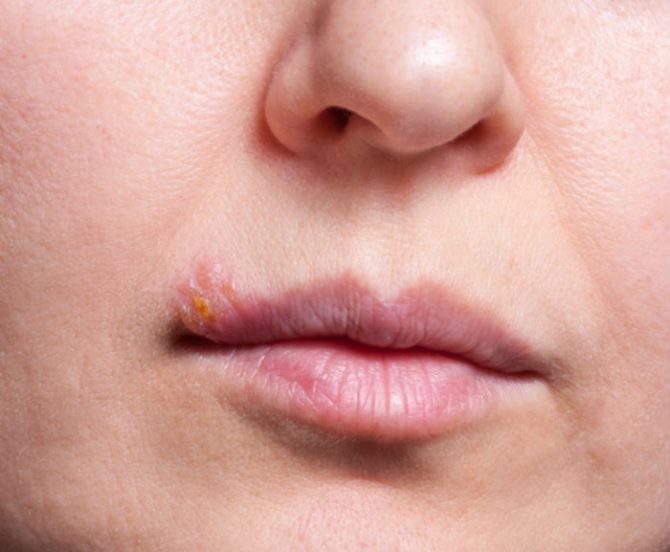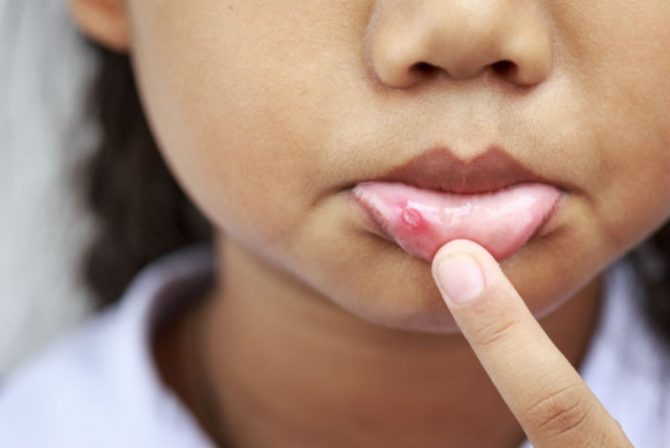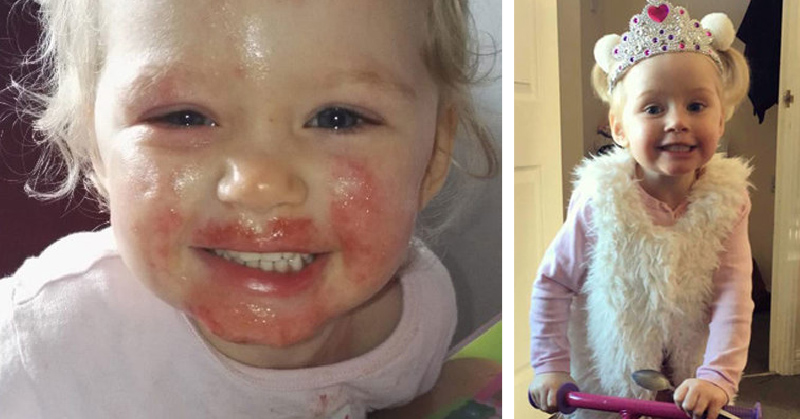Turning 2 years old is a really big deal! But for toddler Sienna Duffield, what was supposed to be a fun birthday party turned into a medical nightmare.
Savina French-Bell noticed strange ulcers developing around her daughter’s mouth. The rash quickly developed into widespread itchy blisters, which burst and bled regularly. French-Bell describes the traumatic experience, “She stopped eating and every day for eight months — it was horrific. There was always blood on her clothes and I was scared to take her outside.”(2)
Sienna’s doctors couldn’t pinpoint what was causing such an extreme rash. French-Bell remembers, “I was told she may have allergies to something, so I kept her away from pets and made sure she no longer consumed any dairy products.” Sienna was kept in the hospital with an IV drip because eating had become too painful. It wasn’t until 8 months had passed that Sienna’s mother recalled a family member giving her toddler a kiss not long before the skin lesions appeared.
Following her hunch, doctors finally correctly diagnosed Sienna with herpes simplex virus-1, which she caught from her relative. French-Bell says, “Everyone in the family was distraught.”(2)
After receiving the appropriate treatment for HSV, Sienna has returned to normal. Her mother is hopeful that they won’t have to deal with another breakout.
What Causes Extreme Reactions to Herpes Simplex 1?
Sienna’s extreme reaction from exposure to herpes simplex 1 is not the norm- the majority of people who contract the infection simply get recurrences of cold sores themselves, and many people never see symptoms at all.

However, there is a genetically predisposed condition that makes some people react very strongly to infections: erythema multiforme.
Erythema Multiforme
Erythema multiforme is an extreme hypersensitivity reaction that can be triggered by infections (mostly herpes, but can include other infections as well) characterized by skin eruptions and lesions. The reaction usually breaks out within 24 hours of being exposed to the virus, often targeting hands, feet, and the face.
Specific symptoms of erythema multiforme include (1):
- itching or burning skin lesions characterized by a round shape with bright red edges, a paler swollen middle area, and dark, blistered centers
- swollen lips
- blisters, mucous forming within a few days of initial breakout
- fever
- weakness
Unfortunately, just like herpes itself, erythema multiforme is recurrent- with breakouts occurring up to a few times a year. Doctors will use medication to treat the underlying infection and help soothe itching and swelling, while the reaction itself generally settles of its own accord over a number of weeks. Doctors can also prescribe medication to help prevent future breakouts. (1)

The bottom line for parents is to set up clear boundaries with family and close friends, especially if you know they may have active infections at gatherings. Children’s immune systems are much more vulnerable than adults’, and while exposure to everyday germs is natural and useful, take care to prevent serious infections from spreading. A cute wave “hello” can be just as good of a greeting as a friendly kiss.

